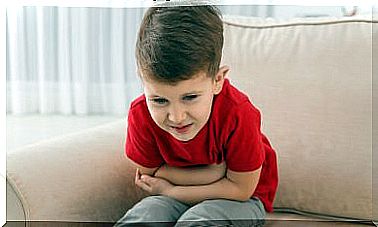6 Signs Of Emotional Deprivation In Children
Imagine not receiving love from the people most important to you. This is how children with emotional deprivation feel. Be an understanding parent and make them feel valuable.

Kisses, hugs, caresses and advice are signs of affection that parents must show in order to avoid emotional deprivation in children.
Giving affection to children is an act that contributes to good psychosocial development, not a whim or a way to create dependency in an unhealthy way. Keep in mind that e n childhood is almost entirely dependent parents or adults in charge. Not only from the economic or educational point of view, but also from the emotional and psychological aspects.
There is nothing more rewarding, encouraging, and positive than a parent who shows affection, love, and understanding on a daily basis. However, this is not always the case in every home. There are children who are lacking in affection; either for his family or closest environment. When this happens, consequences appear that influence their behavior.
What are the signs of affective deficiency in children?
As we have been commenting, during childhood children need displays of affection from those closest to them not only to feel loved and protected, but to be able to develop adequately as social beings.
But, in some cases, that affection is absent and this has its consequences. There are also cases of children receiving some displays of affection in early childhood, but as they grow older, parents tend to show less affection.

Long working hours and hectic modern lifestyles sometimes cause adults to forget some of their family obligations. Among them, showing your children gestures of love that remind them of how important they are to them.
Affective deficiency in children causes them to constantly feel alone or abandoned. In addition, it weakens communication between parents and children and can affect their self-esteem. For this reason, to know if he needs you to show him more affection, you should pay attention to the following points collected by the Chilean Journal of Neuropsychiatry :
- He is a troubled child and has problems when it comes to relating to other people.
- He is defensive and alert to what is happening around him.
- He suffers from childhood stress.
- His immune system is weak due to his level of depression.
Among the ways of externalizing this, the minors give the following signals.
1. Disobedience
From the affective deficiency in children comes the need for care. To be the center of attention, the little ones tend to disobey their parents’ orders and exhibit inappropriate behavior, such as tantrums and crying in public places.
Children who want affection or attention from their parents often make scenes and, if these do not achieve their objective, they increase in intensity and frequency. Thus, the typical signs of disobedience in infants are the following:
- Go to.
- Aggressiveness.
- Impulsiveness.
- Unbridled crying.
- Sudden mood swings.
2. Aggression

When children are aggressive, it is best to listen to them and follow the advice of a specialist. It is also important to know how to give importance to what they say. Thus, they will feel taken into account and will have enough confidence to tell what concerns them.
3. Insecurity
Faced with emotional emptiness and lack of affection in children, they feel unprotected. This causes, as specified by experts in psychology at the Center London, that they have fears when interacting with other people.
By not feeling safe and fearing for their physical integrity, they are on the defensive and alert to what happens in their environment. Therefore, distrust is a clear sign that something is not going well.
4. Fear, a sign of emotional deprivation in children
Affective deficiencies in children that are not treated by a specialist, or those that the infant cannot overcome, can generate a feeling of emptiness and mistrust that will be present in the child’s relationships as they grow.
The fear of abandonment is acquired by the little ones when they do not receive the affection they require from their parents and relatives. This pattern is difficult to leave behind and, in general, it is necessary to take the child to a family psychologist or therapist to help him overcome his fear and strengthen the relationship between parents and children.
5. Low academic performance
Lack of attention and affection in children can lead to learning disorders and lack of motivation when doing homework. According to data from an investigation carried out at the University of Babahoyo, some children with affective deficiency have language problems and poor academic performance.
They tend to take longer than other children to develop language and have few social skills. They censor their emotions and, in general, avoid any kind of show of affection with those around them.
6. Attachment to electronic devices

Some parents choose to let “the digital babysitter” take care of their children. This tendency to let children be distracted by electronic devices or by watching television creates an impersonal parenting method. In addition, it encloses the little ones in a “technological bubble” that leaves human interaction aside. And, with the passage of time, it also causes a dependency on these devices.
The risks of affective deprivation in children
Affective deficiency in children generates fear of losing their loved ones . What results in the little one being alert to what is happening around him.
Infants who grow up in a loving home are kept in a state of permanent anxiety. In search of affective relationships that can satisfy their needs to feel loved and safe. For this reason, it is necessary to take into account that the smallest of the house require constant displays of affection and affection such as caresses, kisses and hugs to grow.
The displays of affection are decisive in shaping their personality and benefiting their maturation. Without this, the child’s neural development is not completed and his cognitive abilities weaken; which causes an insecure personality characterized by emotional immaturity, selfishness and identity problems. In addition, when children grow up in an environment without love, they have problems maintaining stable interpersonal relationships and often have value conflicts.









